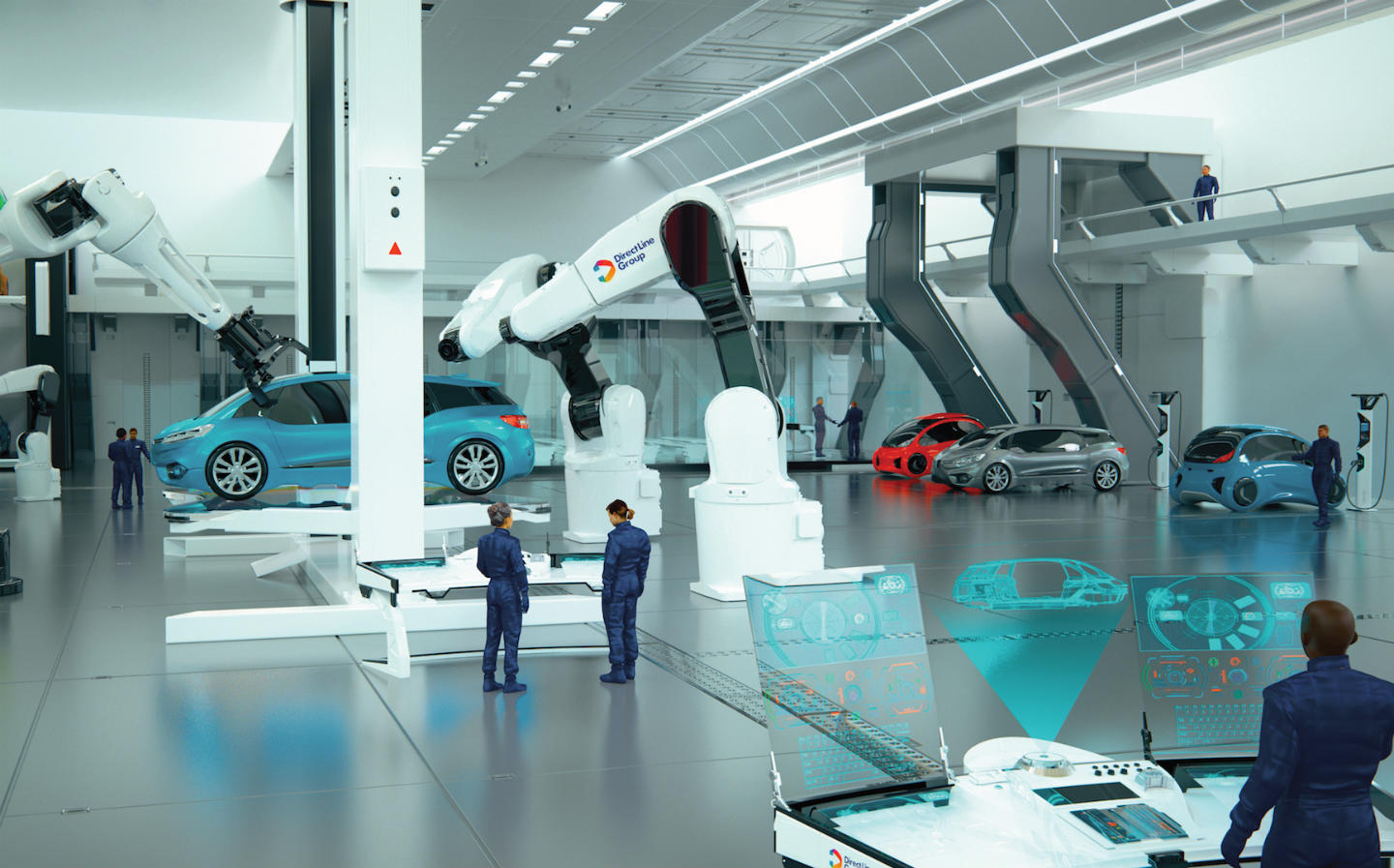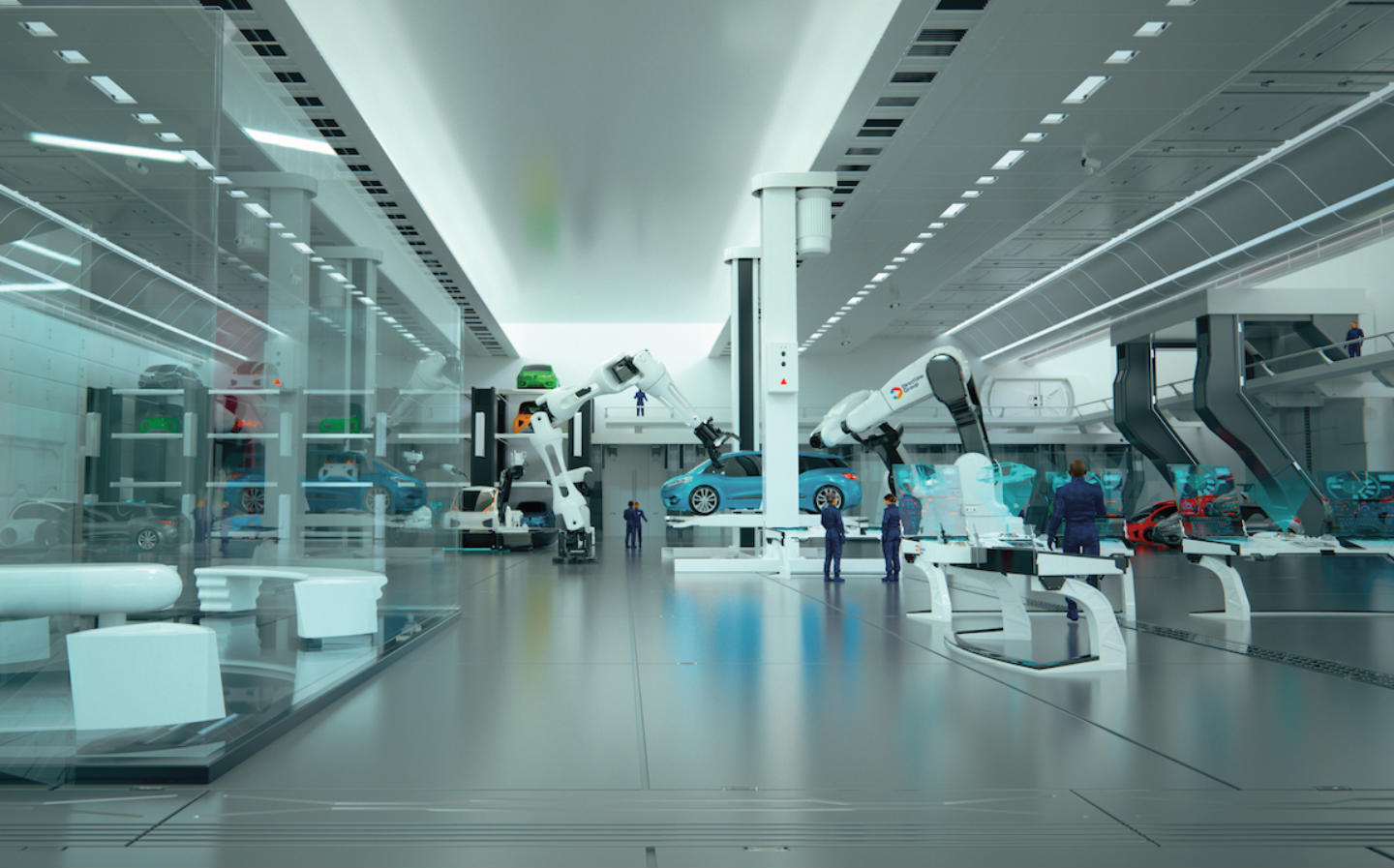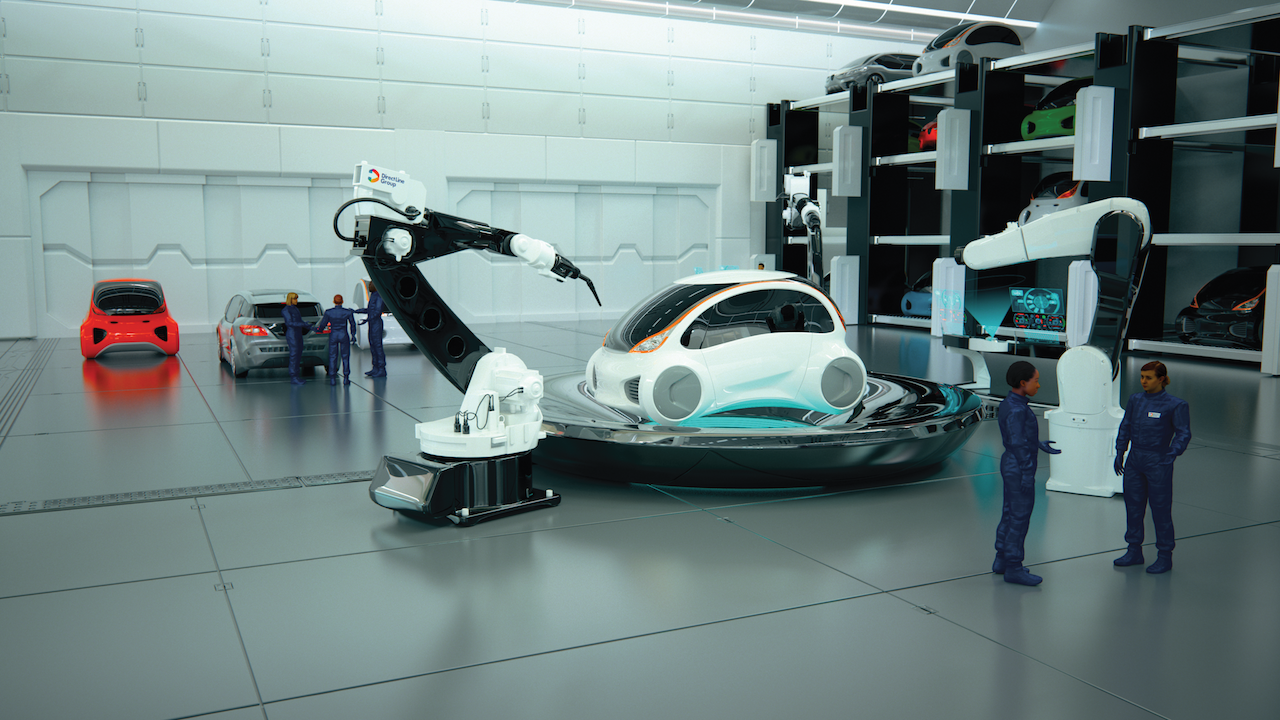Could the car repair and servicing garage of the future look something like this?
Experts reckon holograms and self-diagnosing cars could be with us by 2050
CAR servicing garages will change almost beyond recognition over the next 30 years and will be “more akin to a laboratory than a workshop”, according to a group of experts.
In three decades’ time, car service stations will be ultra-clean environments crammed with incredibly advanced tech, such as augmented reality interfaces, robotic assistants, on-site 3D printers and high power density laser welding systems, says the Direct Line insurance group, based on feedback from vehicle safety body Thatcham Research and the Women’s Engineering Society.
While car mechanics will still use diagnostic tools when repairing vehicles, the systems at their disposal are expected to be considerably more detailed and accurate in the coming decades. With in-car tech expected to advance just as rapidly, vehicles are also likely to come with their own smart self-diagnosing kit by 2050 (this is possible to some extent today).
Perhaps the most space-age claim of all is that mechanics could fix small issues on cars without being present. By using Star Wars-style holograms, engineers and technicians would be able to identify problems on a vehicle and help the driver sort it out remotely.
There’s also a chance that the motorist of the future would not even need to drop their car off at a service station, according to Direct Line. Depending on how autonomous technology and road legislation develop, it’s possible a self-driving car could drive itself to a garage when a service or MOT check is due, and drive back home when the work is finished.
While the predictions may at first look like a bit of fun, there is a more serious side to them. According to a Direct Line poll, 59% of Brits aren’t interested at all in working in a repair centre, so it’s hoping the futuristic predictions will encourage a new tech-focused generation to consider a career in vehicle repair and maintenance systems.
The Direct Line Group’s technology specialist Felicity Harer said: “We hope this glimpse of the future shows young people in particular the variety of careers that are evolving in engineering, and that it will encourage people from a wide variety of backgrounds to consider a career in this sector.
“With innovations like driverless cars within touching distance there is a huge space for people to work in and shape the way repairs are performed on these vehicles and the technology needed to do so.”
Tweet to @J_S_Allen Follow @J_S_Allen
Car Clinic: Does my car need its scheduled service if I’ve not put many miles on it?
Urgent call for training as high voltage electric cars pose ‘very real’ risk to mechanics’ lives







